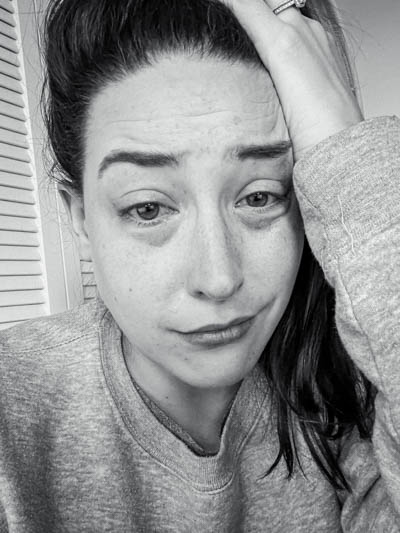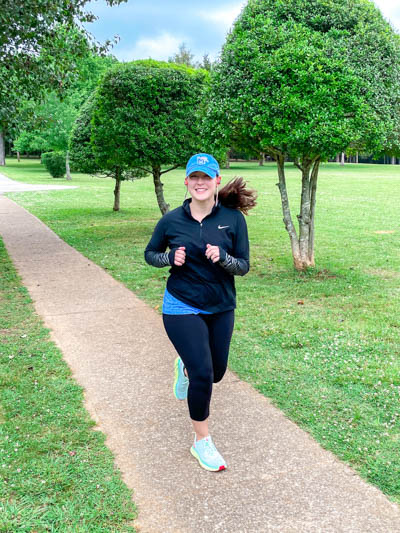Six simple ways to cope with anxiety
Anxiety isn’t like a headache. It’s not always treatable with an Advil and a nap. It can hit you unexpectedly and last for hours, days, months…
One of my friends reached out to me recently about her new struggle with anxiety. She told me that she had never really experienced it before, but she believed she had an anxiety attack.
Something important to remember about anxiety is that it’s not always easily definable and it manifests itself in different ways in different people.
There’s also no quick fix for anxiety. I think that’s why so many people struggle to confront it. While I’m not a doctor, therapist or mental health professional, I have struggled with anxiety and depression for a long time, and I’ve found some ways that help me to cope.
When I’m anxious, I struggle to concentrate, I cry a lot, I want to jump under the covers and hide. But when you’re anxious, you might not do any of those things.

When I was younger I had no idea how to deal with my anxiety. I felt lost and completely out of control. As I’ve gotten older, I’ve found some ways to I can cope with it.
Coping looks different for everyone
I do want to stress a couple things before sharing those coping mechanisms, though. These are important to remember when managing your anxiety.
1. Everyone copes with anxiety in different ways.
2. My coping mechanisms might not work for you the same way they work for me.
3. There is no quick fix! I have good days and bad days, but these coping mechanisms help me not to feel so out of control on the bad days.
4. Help is ALWAYS available.
I am not sharing these coping mechanisms with you as a way of telling you that this is how you should cope with your mental health struggles, but to encourage you to find mechanisms that do work for you.
Six ways to help manage anxiety
Therapy. This will always be my #1 coping mechanism. I went to therapy for the first time at 15 and even though I hated it at that time, I grew to love it and even went while in college. Even if you don’t struggle with anxiety or depression, having someone to talk to who knows nothing about you is so beneficial for your mental health. Visit Psychology Today to search for a therapist that can help best fit your needs.
Exercise. I love this one because it can be so many different things depending on what you like. I love to run, but when it comes to exercise there are so many options. Walking the dog, swimming, dance, yoga…. the options are endless. Find what works for you!

Journaling. Writing can be incredibly healing. I use the Five Minute Journal each morning to start my day. The prompt is the same every day. It’s a simple way to reflect and improve your approach to each day. I also love to free journal. I’ve always said I could tell a piece of paper more than I could ever tell a person. Write it down! You’ll feel better.
Meditation and prayer. I find this coping mechanism to be so helpful during a stressful workday. If I’m struggling to concentrate or am feeling overwhelmed, I find it helpful to step away from my desk, go sit in a quiet room, dab some lavender oil on my palms and breathe it in, then take 10 deep breaths. I find that this helps me to re-focus and rid myself of any negative energy. I also love the Headspace app. There is a free program you can download, but there’s also a paid version that gives you access to hundreds of meditations, sleep stories, and focus playlists.
Reading. There’s no escape like a good book! I love reading and have found recently that it helps me to escape from reality for a minute.
Limiting social media time. I think we’ve all become aware of the negative effect social media can have on our mental health. Social media is great for so many things. However, it’s important to limit your screen time. Limit yourself to 10 minutes in the morning, 10 minutes at lunch, and 10 minutes before bed. Turn your notifications off. Turn on the social media time limits on your phone. I’ve found that spending less time on my phone and more time doing things on this list can really help my state of mind.
Anxiety is not “one size fits all”
Coping with anxiety is not “one size fits all.” I encourage anyone who is struggling with anxiety or depression to talk to someone. A friend. A doctor. A therapist. A family member. Advocate for yourself! You are the only person who knows how you feel and you are the only person who knows what will work for you. Find your own ways to cope. It’s not always going to be an easy road, but know that you are not alone in the struggles you face.
I’d love to hear different ways you cope with anxiety and depression. Let me know in the comments below!
